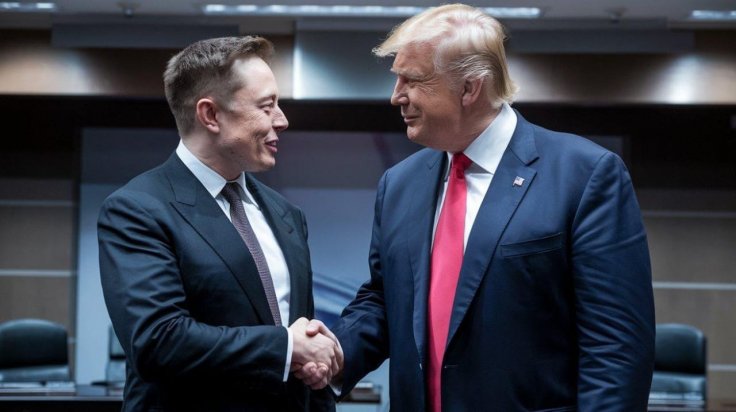The relationship between Donald Trump and Elon Musk has hit a rocky patch. The two have strongly disagreed over the president's new "Liberation Day" tariffs. Musk, known for backing Trump in the past, is now openly criticizing the policy and those who support it.

Trump recently announced a new universal tariff. It places at least a 10% tax on all imported goods. The move is aimed at protecting American industries. But Musk thinks it will do more harm than good. His companies, including Tesla and SpaceX, depend heavily on international supply chains. These new tariffs could increase costs and disrupt operations.
Musk voiced his concerns during a remote appearance at a political conference in Italy on April 5. He said the U.S. and Europe should work towards a zero-tariff trade zone. "That has been my advice to the president," he said. "Free trade between Europe and North America would benefit everyone."
After the speech, Musk posted a video on X (formerly Twitter). It showed economist Milton Friedman explaining how tariffs hurt consumers and waste resources. Many saw this as a clear jab at Trump's new policy.
The Tesla CEO didn't stop there. He also took aim at Trump adviser Peter Navarro. Navarro helped design the tariff strategy. Musk mocked Navarro's academic background and said he lacked real-world experience. "Navarro has an Ivy League degree but hasn't built anything," Musk said.
Later, Musk escalated his criticism further online. He called Navarro "truly a moron" and claimed his economic ideas were "demonstrably false." Navarro quickly responded. He dismissed Musk as just a "car assembler" who was trying to protect his own profits.
This public clash has drawn wide attention. Musk is currently a key figure in Trump's government. He leads the Department of Government Efficiency (DOGE), which works to cut federal spending. Now, many are wondering if Musk will step down from his role.
So far, the White House has remained silent about Musk's future in the administration.
President Trump, meanwhile, has stood by his tariff policy. He argues that the European Union treats the U.S. unfairly. "They don't buy our cars, our food, or anything really," he said. "But they send millions of cars here—Mercedes, BMWs, Volkswagens. It's not fair."
He also said the trade deficit with the EU is $350 billion. Trump claims the new tariffs will shrink that number fast. He believes Europe will soon have no choice but to buy U.S. energy and other goods.
Despite the mounting criticism from Musk and others, Trump says he won't back down. His supporters say the tariffs will protect American jobs and help struggling industries.
This sudden shift in the Trump-Musk relationship has raised eyebrows. Just weeks ago, the two seemed closely aligned. Musk was seen as one of Trump's most influential advisers. But their sharp disagreement over tariffs could signal a deeper divide.
Analysts say the situation could get worse if Musk continues to speak out. Others believe the two may find common ground again. For now, the future of their partnership remains uncertain.
What is clear, though, is that the battle over tariffs has sparked a major political and economic debate—with two of the world's most powerful figures on opposite sides.









